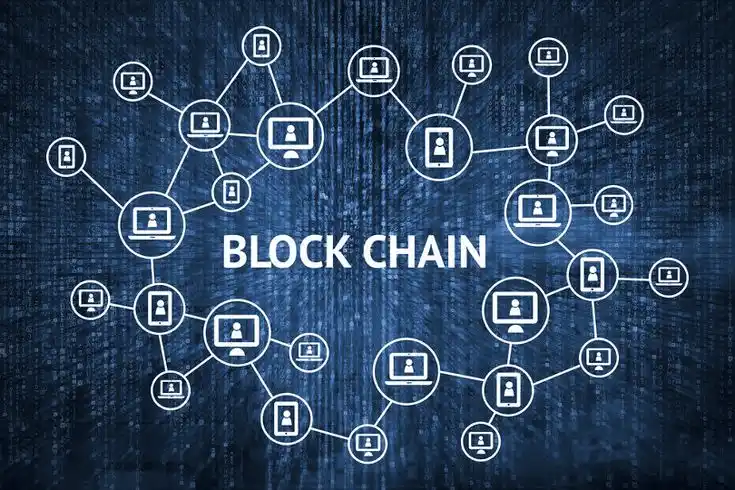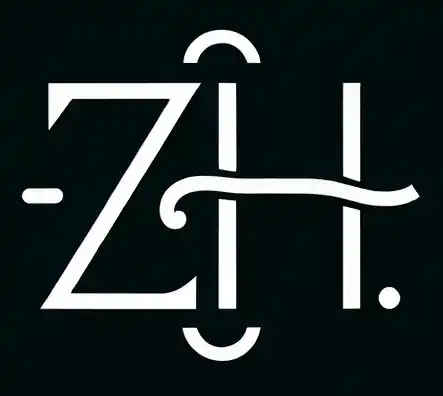Zeeshan Hayat’s Insights on How Blockchain Can Revolutionize Business Practices

Blockchain technology is reshaping industries, redefining trust, and solving problems once considered insurmountable. It has captivated global attention for over a decade, but its true potential often feels lost amidst buzzwords and jargon. To move past the hype, we need to understand its transformative power in real-world applications. Let’s explore what the blockchain can do and its vast potential with clarity and purpose.
Trust Redefined: The Foundation of Blockchain
In a world plagued by data breaches, fraud, and misinformation blockchain redefines trust, offering a decentralized way to store and verify information. This isn’t just a technical improvement—it’s a societal shift. Imagine a system where business contracts, identity documents, or even charitable donations are transparently verifiable, free from manipulation.
For instance, luxury goods manufacturers are using blockchain to authenticate products, ensuring consumers receive genuine items. This protects brands while building customer loyalty through proof of authenticity. What can blockchain do here? It eliminates doubt, building relationships based on certainty and evidence.
Efficiency Beyond Imagination
Complex processes bog down industries, whether it’s transferring property, processing insurance claims, or settling international payments. Blockchain technology introduces automation and efficiency through smart contracts—self-executing agreements that trigger actions once predefined conditions are met.
Take real estate as an example. Traditionally, buying a property involves layers of intermediaries, paperwork, and delays. Blockchain simplifies this process, recording transactions securely while automating ownership transfers. This can reduce costs and faster timelines. Across sectors, what can blockchain do is cut through inefficiencies, creating streamlined workflows that redefine what’s possible.
Empowering the Individual
Ownership of personal data has long been taken away from individuals, which is now controlled by corporations and institutions. Blockchain shifts this balance, putting data ownership back where it belongs. From healthcare records to digital identities, it ensures people retain control of their information.
In healthcare, for example, blockchain enables patients to grant secure access to their medical histories when needed without compromising privacy. This ensures accurate diagnoses and reduces errors caused by fragmented records. Blockchain flips the narrative, letting individuals—not systems—decide how their data is used.
Revolutionizing Supply Chains
Every product we consume has a journey, yet supply chains are notoriously opaque. Blockchain injects much-needed transparency by recording every step, ensuring that data cannot be altered retroactively. Whether it’s ensuring ethical sourcing of raw materials or verifying organic certifications, blockchain creates trust where opacity once thrived.
For instance, in the food industry, blockchain helps trace contamination outbreaks back to their source within minutes, preventing large-scale recalls and reducing waste. What can blockchain do for supply chains? It turns complexity into clarity, building accountability at every stage.
Bridging the Financial Divide
Access to financial services remains a significant barrier for billions worldwide. Traditional banking systems are centralised and often inaccessible to those without proper documentation or stable incomes. Blockchain breaks these barriers, enabling decentralised finance (DeFi) solutions that operate without intermediaries.
Cryptocurrencies, stable coins, and blockchain-based lending platforms allow unbanked populations to save, invest, and transact securely. This isn’t just about convenience—it’s about financial inclusion. What can blockchain do for the global economy? It democratises financial access, empowering individuals and small businesses to thrive.
Safeguarding Privacy in a Digital World
In today’s digital economy, data is currency. Unfortunately, it’s often exploited, sold, or stolen without consent. Blockchain addresses this issue by allowing individuals to share only what’s necessary. For instance, a blockchain-based ID system can verify age for a purchase without revealing other personal details.
This selective disclosure protects privacy without sacrificing functionality. In sectors like banking, education, and healthcare, what can blockchain do is create secure ecosystems where personal information is shared responsibly.
Transforming Governance and Democracy
The integrity of governance systems is critical to societal stability, yet it is frequently compromised by inefficiencies and corruption. Blockchain introduces unprecedented transparency, particularly in voting systems and public fund allocation.
Blockchain-based voting eliminates tampering concerns, enabling real-time verification and ensuring that every vote is counted accurately. This isn’t a futuristic dream—it’s already being tested in small-scale elections worldwide. This is what blockchain can do for democracy; it restores faith in institutions, proving that transparency and accountability are more than ideals.
Driving Sustainability
Environmental sustainability is a global imperative, yet efforts are often hindered by lack of verifiable data. Blockchain creates a solution by tracking carbon footprints, renewable energy usage, and sustainable practices in real time.
Specifically, blockchain-powered systems can ensure that corporations meet environmental regulations by providing tamper-proof records of their activities. Consumers, too, can make informed decisions based on accurate, unalterable information about a company’s green initiatives. Blockchain bridges the gap between promises and action, holding entities accountable for their impact on the planet.
Intellectual Property Protection Made Simple
Ideas are the lifeblood of entrepreneurship, yet protecting intellectual property (IP) can be an uphill battle. Blockchain offers a robust solution by timestamping and verifying ownership.
Such as, a tech entrepreneur could use blockchain to record the original blueprint of a product. This creates a tamper-proof record, making disputes easier to resolve and theft harder to execute.
By safeguarding innovation, blockchain addresses the critical need for IP protection, leaving entrepreneurs to focus on growth.
A Platform for Endless Possibilities
The most exciting aspect of blockchain is its versatility. It’s not a one-size-fits-all technology; instead, it’s a foundation upon which countless innovations can be built. Whether it’s enabling cross-border philanthropy, improving disaster relief logistics, or powering decentralised learning platforms, the possibilities are boundless.
What can blockchain do ultimately depends on how we leverage its potential. It’s a technology that thrives on collaboration, creativity, and a willingness to challenge the status quo.
Conclusion: Turning Potential into Reality
Blockchain is more than a technology—it’s a revolution in trust, transparency, and empowerment. It encourages entrepreneurs to challenge existing norms and find innovative ways to achieve their goals.
Whether it’s automating processes or expanding into global markets, blockchain provides answers to some of the most pressing questions facing entrepreneurs.
The future is unwritten, and the tools to shape it are in our hands. Whether it’s driving sustainability, building inclusivity, or creating efficiencies, blockchain offers a transformative path forward.
The opportunities are vast—what will you build with them
